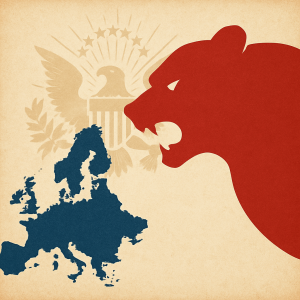He wants to act quickly. Starting on Wednesday, the first day of his mandate, Joe Biden wants to tackle, through presidential decrees, the crises of the Covid epidemic, the climate, the economy, interracial relations in order “to put our country back on its feet”, says his entourage, and “to restore America’s place in the world”.
Very good. We can only applaud, but is it possible to “restore America’s place in the world” when the world has changed so much and the United States has fractured so much that its wounds will take a long time to heal?
The answer is “no”. America has so many challenges to meet that it will not be able to become again the hyperpower it became after the break-up of the Soviet Union and certainly not, either, the world’s policeman that it no longer wants to be since the failure of its Iraqi adventure.
Like all democracies, America must redraw a political chessboard that has been shaken by the fact that a third of its electorate shifted to the far right. At the same time, it will have to wage a very uncertain struggle to prevent China from taking over its place as the world’s leading economy. It will have to, in parallel, offer credible protection to the nations of Asia so that this continent does not become a Chinese protectorate.
Condemned, in a word, to concentrate its forces and efforts on the Pacific while its quest for a new internal consensus will only be opening up, America cannot and should not delude itself about its possibilities of “restoring” the place it occupied in the 20th century.
What it has to strive for is to invent a place for itself in the 21st century, starting by working towards a redefinition of the Atlantic Alliance.
Since the United States rightly no longer wishes to assume alone the cost of Europe’s defence, it has to accept that the European Union should acquire a common defence based on European defence industries and that NATO should thus become an Alliance of equal partners in rights and duties, the alliance of the two largest and richest democracies in the world.
Not only must the Union be able to carry as much weight as the United States in the Alliance of the 21st century, but a division of roles between the two sides of the Atlantic must be established as soon as possible. While the United States will continue to look towards the Pacific and Asia, it will be up to the Union to stabilise the Mediterranean area by undertaking to establish a zone of security and cooperation between the three sides of the mare nostrum and their hinterland.
Neither side will have an easy task. On the contrary, its difficulty will require the United States and the Union to work together to resolve secondary tensions and find, first and foremost, a modus vivendi with Russia. This is in the best interests of the European, Russian and American powers, because Russia would have as much to lose by locking itself in a one-on-one with the Chinese elephant as the West would by seeing Beijing and Moscow stand united against them.
Yesterday “Atlanticism” was about Europe’s subordination to the United States. Today it is about the indispensable entente of the democracies in the face of the affirmation of dictatorships, the rebirth of obscurantism and the rise of barbarism.



